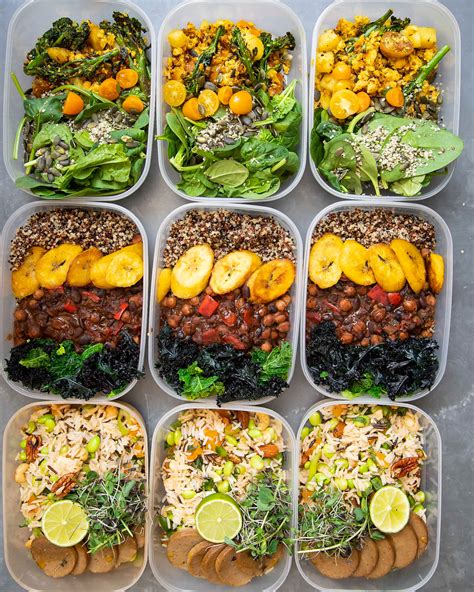Building muscle and maintaining high energy levels often comes with the misconception that it requires an expensive diet full of exotic superfoods and premium supplements. However, with smart planning and a focus on nutrient-dense, affordable options, men can effectively fuel their bodies for strength, recovery, and sustained energy without breaking the bank. This guide explores practical, cost-effective strategies to optimize your nutritional intake.
Prioritizing Whole Foods: The Foundation
The cornerstone of any effective, budget-friendly diet is a focus on whole, unprocessed foods. These items are typically less expensive per serving than their highly processed counterparts, and they offer a superior nutritional profile. By prioritizing whole foods, you get more bang for your buck in terms of vitamins, minerals, fiber, and macronutrients, which are all crucial for muscle synthesis and energy production.
Budget-Friendly Protein Powerhouses
Protein is essential for muscle repair and growth, but sources can vary widely in price. Smart choices can keep your protein intake high without straining your wallet.
- Eggs: One of the most complete and affordable protein sources. Versatile for any meal.
- Legumes (Beans, Lentils): Incredibly cheap, packed with protein and fiber. Great in stews, salads, or as a side.
- Canned Fish (Tuna, Sardines, Mackerel): Long shelf life, excellent source of protein and healthy fats (omega-3s).
- Chicken Thighs/Quarters: Often significantly cheaper than chicken breasts, offering similar protein content and often more flavor.
- Dairy (Cottage Cheese, Greek Yogurt, Milk): Affordable sources of casein and whey protein, ideal for snacks or post-workout recovery.

Smart Carb Choices for Sustained Energy
Carbohydrates are your body’s primary fuel source, crucial for powering workouts and daily activities. Opting for complex carbohydrates provides sustained energy and essential nutrients.
- Oats: Inexpensive and versatile, perfect for breakfast or a pre-workout meal.
- Rice (Brown or White): A staple carb source that’s cheap and easy to prepare in large batches.
- Potatoes and Sweet Potatoes: Excellent sources of complex carbs, vitamins, and minerals. Buy in bulk for savings.
- Whole-Grain Bread and Pasta: Look for generic brands or sales to get nutritious carbs at a lower cost.
Essential Fats on a Dime
Healthy fats are vital for hormone production, nutrient absorption, and overall health. You don’t need expensive oils or supplements to get enough.
- Seeds (Chia, Flax, Sunflower): Packed with healthy fats, fiber, and micronutrients. Buy in larger bags for better value.
- Nuts (Peanuts, Almonds when on sale): Peanuts are particularly cost-effective and a good source of protein and healthy fats.
- Olive Oil: A staple healthy fat for cooking and dressings, often available in larger, more economical bottles.

Strategic Meal Planning & Preparation
One of the most effective ways to save money and ensure consistent nutrition is through meal planning and preparation.
- Batch Cooking: Dedicate a few hours once or twice a week to cook larger quantities of meals or components (e.g., grilled chicken, cooked rice, roasted vegetables).
- Shopping Sales and Bulk: Keep an eye on weekly flyers for discounts on protein sources and produce. Buying non-perishables like oats, rice, and canned goods in bulk can lead to significant savings.
- Seasonal Produce: Fruits and vegetables are typically cheaper and fresher when they are in season.
- Minimal Waste: Plan meals to use up ingredients efficiently, reducing food waste and saving money.

Hydration: The Often-Overlooked Fuel
Water is arguably the cheapest and most crucial fuel for your body. Proper hydration supports metabolic function, nutrient transport, and can even help manage appetite.
- Drink Tap Water: It’s free and readily available. Invest in a reusable water bottle to carry with you.
- Avoid Sugary Drinks: Sodas, energy drinks, and excessive fruit juices add empty calories and cost money.
Smart Supplementation (If Necessary)
While a whole-food diet should be your primary focus, a few cost-effective supplements can offer a good return on investment if your budget allows and your diet has gaps.
- Creatine Monohydrate: One of the most researched and effective supplements for strength and muscle gain, remarkably affordable.
- Basic Whey Protein Concentrate: If whole food protein intake is consistently difficult or time-consuming, a basic whey concentrate can be a convenient and relatively inexpensive option, especially when bought in larger tubs.
- Multivitamin/Mineral: If your diet lacks variety due to budget constraints, a basic multivitamin can help cover potential micronutrient deficiencies.

Conclusion: Consistency and Smart Choices Pay Off
Achieving muscle growth and sustained energy doesn’t require an endless budget. By focusing on whole, affordable foods, strategic meal planning, and smart supplementation, men can build a powerful and cost-effective diet. Consistency in your food choices and preparation will yield the best results, proving that you can fuel your gains and energy levels efficiently and economically.





